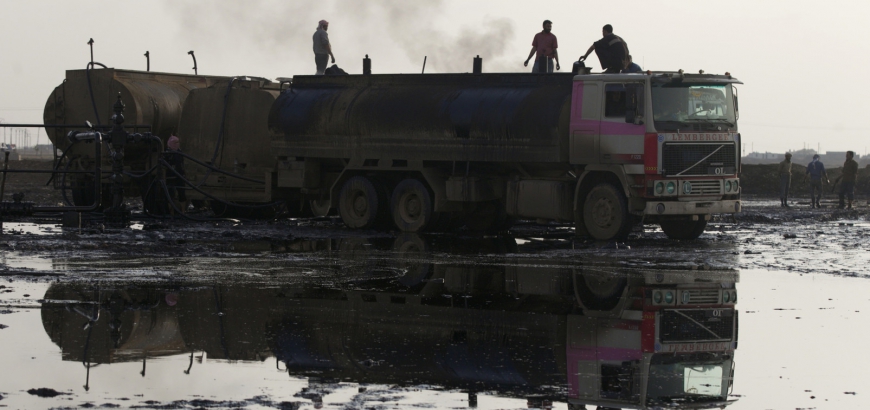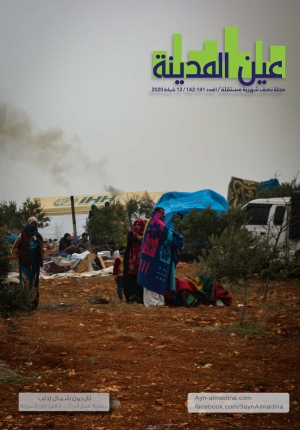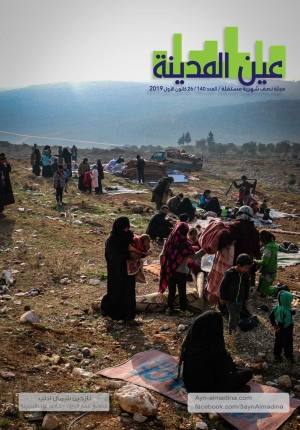- Home
- Articles
- English
Why is ISIS Attacking Oil Tankers in Deir Ezzor
In July and August of this year, ISIS significantly escalated its attacks on oil tankers in the areas of Deir Ezzor controlled by the Syrian Democratic Forces (SDF). This sudden surge suggests a strategic shift by the group, bringing the oil sector back to the forefront of its targets in the region.
According to reports from Al-Naba’, ISIS's weekly outlet, the group carried out nine attacks on oil tankers in SDF-controlled Deir Ezzor between July 9 and August 15. An additional attack occurred on June 26. Encouraged by these operations, ISIS media declared that the group is waging an "economic war." In its August 22 issue, Al-Naba’ published statistics under the title "The Economic War," stating that ISIS carried out 21 operations against oil tankers in Syria between August 1, 2023, and August 15, 2024, targeting 66 tankers in total. However, the geographical distribution of these operations reveals that this so-called economic war is primarily taking place in SDF-controlled Deir Ezzor, rather than being a consistent or widespread strategy.
Geographic Distribution of ISIS Attacks on Oil Tankers and Products in Syria (August 1, 2023 - August 25, 2024)
|
Region |
Deir Ezzor |
Raqqa |
Hasakah |
Hama |
|
Number of Attacks |
16 |
3 |
1 |
1 |
Source: Al-Naba’, Issue 457
On the other hand, the attacks have largely spared oil wells, except for a few cases. This suggests that ISIS aims not to disrupt production but to punish those investors, who are all local residents and own the targeted tankers. These tankers typically carry diesel after it has been processed in primitive refineries. But why would ISIS penalise these individuals, even though they are a primary source of its funding through forced payments under various pretexts, such as "zakat" or "Sultaniyah"?
The answer may lie in the arrest of Faisal Ziyad Asfad, also known as "Mash'al al-Iraqi," on June 13. Asfad, who has been working undercover for the past years, was reportedly the head of ISIS operations in Deir Ezzor, according to some sources who confirmed to Ain Al Madina. Following his arrest, the wave of tanker attacks began, suggesting that his successor has prioritised increasing financial resources, launching these attacks as a prelude to extract additional funds from oil traders and investors.
Given SDF’s current capabilities, it seems unlikely they can dismantle ISIS’s local funding mechanisms in the oil sector. Hundreds of oil wells are scattered across a vast area, many beyond SDF’s protection. The Autonomous Administration’s Jazira Oil Company operates and leases out these wells, demanding a monthly fee or a share ranging between 70%-90% of diesel production, which is exclusively delivered to the well-guarded headquarters of the Administration’s Fuel Directorate in the 7 km safe zone north of Deir Ezzor. The remaining share (10% to 30%) along with other by-products go to the investors. The Jazira Oil Company directly manages key wells in fields like al-Omar and al-Jafra, exporting the output through generally safe and secure routes.
It’s difficult to estimate how much ISIS extorts from oil well operators, traders, and smugglers to regime-held areas, but it certainly exceeds the group’s operational costs in Deir Ezzor. Most of ISIS's recent attacks have been low-cost, and its members, numbering in the hundreds, can sustain their personal and familial needs through forced contributions from sectors beyond oil.
One well operator, producing 100 barrels per day, told Ain al-Madina that he recently paid $6,000 to ISIS, which he still refers to as "the State." The demand came through a WhatsApp message from an unknown number, specifying the amount, time, and place of payment to two individuals, who then issued a stamped receipt confirming the zakat had been paid. While small operators like him are only required to pay zakat annually, larger investors may pay up to $50,000 every month or two under the pretext of "Sultaniya" or without any label at all. No one can evade or negotiate these payments unless they have a contact within ISIS. The group can easily attack any well operated by local traders, even those with armed groups. For instance, when Mohamed Ramadan al-Dabba’, who is an investor of several wells between the al-Omar and al-Tanak oil fields and leads a large armed group affiliated with SDF’s Oil Protection Forces, refused to pay ISIS for several wells at the al-Sijan station, ISIS seized the station and extracted oil over two consecutive nights. Al-Dabba eventually complied after ISIS cells plastered walls with posters threatening him by name


 علي مروان
علي مروان



